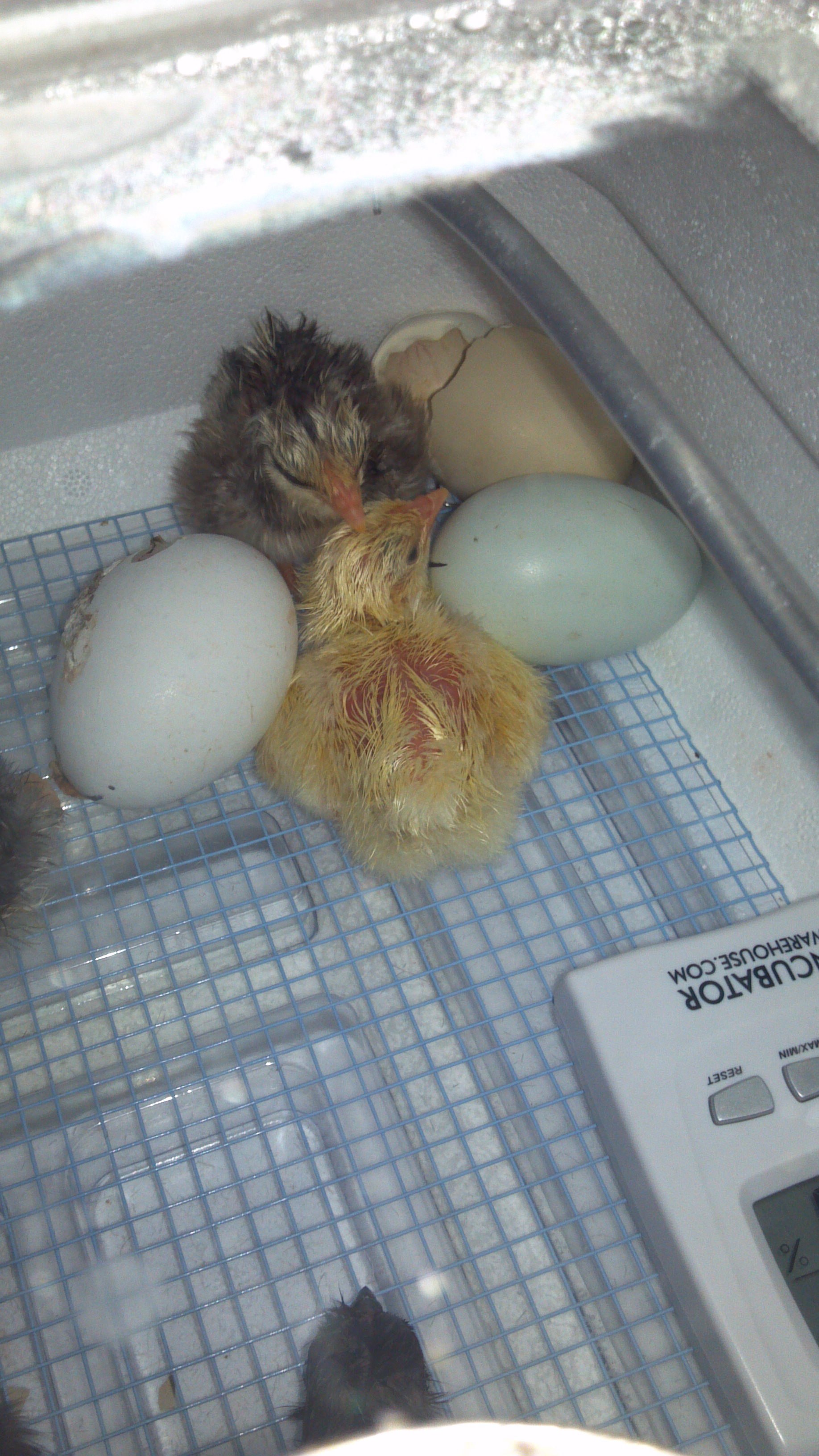As I write this review, the sweet sounds of new life greet me from the incubator that is on the floor next to me. Fresh Slate Palm heritage turkey hatchlings are working their way out of their beautiful shells and into the world. One of my favorite things about farming is seeing the babies that are hatched and born on our property, which is life affirming as well as profitable to our farm.
Despite the joy, I am always saddened when eggs do not hatch for one reason or another. To increase our hatch rates, I did a lot of research to find out the best incubation tools and practices. Though I was prepared to spend a lot of money to purchase a top-notch incubator, it was suggested to me to try the Hova Bator forced air incubator. Figuring that I could return it if it did not work well, I bought mine on Amazon and eagerly awaited its arrival. Our first hatch consisted of 9 fertile chicken eggs. Using the Hova Bator, we wound up with 7 healthy chicks, which are excellent numbers for what I consider to be a very inexpensive piece of equipment.
Since that time, we have hatched more chicken, turkey and quail eggs than I can count and have often lent the equipment to elementary schools for science fair hatches. Recently, we went on vacation, leaving farm interns to tend the incubator. Left with instructions to monitor the temperature and humidity, the interns added water twice to the unit and did not need to adjust the temperature at all. When we returned, the eggs were just beginning to hatch and we had great success with almost no effort. I was very pleased with the results, to say the least!
In short, I highly recommend this incubator. It is inexpensive, easy to use and extremely reliable. It has been a great addition to our operation, increasing our profitability and the “fun factor” of having fluffy chicks continually on the farm.
Use an automatic egg turner for effortless incubation.
An automatic egg turner is a must for incubating eggs with ease. We recently went on vacation, leaving our incubator running while we were away. Without an egg turner, this would not have been possible as eggs must be turned several times per day for a successful hatch. An automatic egg turner also reduces the number of times that the incubator must be opened, thus increasing the stability of temperature and humidity levels which are critical to a successful hatch.
It is important to get a reliable model that is compatible with your incubator brand. This one fits the Hova Bator and can hold eggs of many different sizes. Eggs should be placed in the turner with the pointed end facing downwards. The egg turner should be removed 2-3 days prior to the expected hatch date.
Hatching eggs is fun an profitable.
At The Micro Farm Project, we are constantly hatching eggs. The process is not only enjoyable, but also earns money for the farm. Our children breed, hatch and sell specialty chicken breeds, such s Mille Fleur D’Uccle and Bantam Polish birds which are great for the show ring and wonderful for urban farmers due to their small stature. We also hatch and sell chicks of many kinds, including Coturnix Quail, chickens and heritage breed turkeys.
Additionally, the farm raises chickens and turkeys for processing classes. When the birds are grown, our customers purchase one or two and we teach them how to dispatch and process the meat.
Finally, hatching poultry and quail increases the self-sufficiency of our farm as we are able to resupply our own flocks and provide our family with meat that is grown and raised on our own property.
Want to learn more about hatching and raising poultry?


